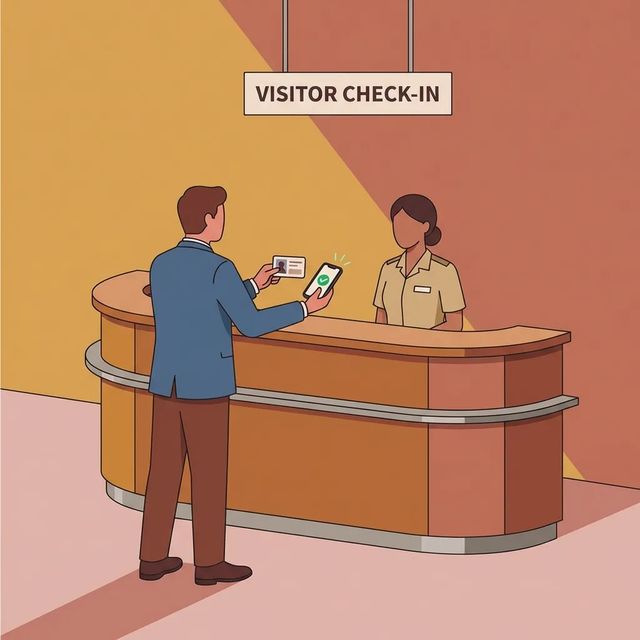Rock Island County Jail
Explore
Find an Inmate at Rock Island County Jail
Search for a loved one and send messages and photos in minutes.

Guides for This Facility

How to Contact an Inmate at Rock Island County Jail
Rock Island County Jail switched to an electronic inmate mailing system through ViaPath Technologies and Text Behind. The mailing address changed on July 1, 2024, so make sure you have the current address before sending anything.
Read Guide
How to Send Money to Facility
Sending funds or correspondence to someone at Rock Island County Jail? The key is using the correct address for each type of mail. Money orders and legal mail follow different rules than personal mail, which gets scanned electronically.
Read Guide
Before You Visit Rock Island County Jail: Visitor list, ID rules, 30-minute visits, and who to call
Visiting someone at Rock Island County Jail goes smoother when you handle a few things first: confirm you're on the approved visitor list, bring valid ID, plan for the strict 30-minute limit, and call ahead to make sure the cell block is accepting visitors that day.
Read GuideAt a Glance
Visitation
- Most Illinois jail visits must be scheduled in advance.
- The incarcerated person usually must add you to their approved visitor list before you can visit.
- On-site visits use public terminals or visitation booths; remote visits use third-party video services.
Communication
- Rock Island County Jail implemented an electronic inmate mailing system (ViaPath/TextBehind) and changed the inmate mail address effective July 1, 2024.
- Personal mail (letters, postcards, greeting cards, photographs, drawings) is scanned and delivered digitally to inmates via the facility’s electronic tablet system.
- If you have problems with mail delivery, contact TextBehind support at the address provided by the vendor.
Sending Money
- Mail money orders and legal mail to Rock Island County Jail, 1317 Third Avenue, Rock Island, IL 61201.
- Money orders and attorney‑client privileged mail are not part of the jail’s scanned electronic mail process.
- Child support payments are handled through the Illinois State Disbursement Unit at SDU PO Box 5400, Carol Stream, IL 60197-5400.
Based on official sources and community feedback. Learn how we verify
Topic Overviews
Visitation
Most Illinois jails require visits to be scheduled in advance, and Rock Island County Jail is no different. You can often schedule at an on-site kiosk or set up a remote video visit if that option is available. Before visiting, the incarcerated person needs to add you to their approved visitor list, and you'll need to complete the facility's visitor approval process. On-site visits typically happen at public terminals or in visitation booths. Remote visits run through third-party video services during the facility's designated time windows. When you arrive, expect staff to search you, your vehicle, and your belongings. Bring a current, readable photo ID if you're an adult. Minors usually need to attend with a parent or legal guardian.
Read full guideCommunication
Rock Island County Jail switched to an electronic mail system (ViaPath/TextBehind) with a new inmate mail address effective July 1, 2024. Personal mail, including letters, postcards, greeting cards, photographs, and drawings, gets scanned and delivered digitally to inmates through the facility's tablet system. If something you mailed doesn't show up in the inmate's account, contact TextBehind support using the vendor's delivery-issues contact information. Phone calls, video visits, and electronic messaging are generally available but monitored and recorded. You'll typically need to register with the facility's approved communications vendor, add funds to an account, and schedule video visits through the vendor's system.
Read full guideSending Money
Mail money orders and legal mail directly to Rock Island County Jail, 1317 Third Avenue, Rock Island, IL 61201. The jail doesn't include money orders or attorney-client privileged mail in its scanned electronic mail process, so send these as physical mail following the jail's instructions. Sending child support for someone housed here? Payments go through the Illinois State Disbursement Unit (SDU). Mail SDU child support items to SDU PO Box 5400, Carol Stream, IL 60197-5400. For past-due child support, the Illinois SDU accepts Visa and MasterCard by phone at 1-877-225-7077. When sending funds, double-check the person's full name and booking or ID number (or date of birth). Pick the right deposit method: online vendor, kiosk, retail agent, or mail. Electronic deposits usually post faster than mailed payments.
Read full guideCommon Questions
Showing 6 of 9Do visits usually need to be scheduled in advance?
Yes. Most Illinois jail visits require advance scheduling. Depending on the options available, you may be able to schedule at a facility kiosk or arrange a remote video visit from home.
VisitationHow do I get on an inmate's approved visitor list?
The incarcerated person must add you to their approved visitor list. After that, you typically complete the facility’s visitor approval form and wait for the visit to be cleared.
VisitationWhat should I expect when I arrive for a visit?
Expect staff to search you, your vehicle, and your belongings, and refusing a search can lead to being turned away or restricted later. Visits are typically monitored and recorded, and staff can end a visit if rules are broken.
VisitationWhen did Rock Island County Jail change to an electronic mail system?
Rock Island County Jail implemented an electronic inmate mailing system (ViaPath/TextBehind) and changed the inmate mail address effective July 1, 2024.
CommunicationHow will letters, photos, or cards reach an inmate at Rock Island County Jail?
Personal mail is scanned and delivered digitally to inmates through the facility’s electronic tablet system.
CommunicationWho should I contact if a mailed item doesn’t arrive in a Rock Island County Jail inmate’s account?
Contact TextBehind support using the vendor’s listed contact information for delivery issues.
CommunicationMore Guides
Ready to Connect?
Search for your loved one to start communicating today
Did You Know?
Rock Island County Jail uses an electronic inmate mailing system called ViaPath/Text Behind. The inmate mail address changed on July 1, 2024, so check the facility's current instructions before sending messages or physical mail.
This guide is based on feedback from dozens of families and official facility documentation. Learn how we verify
